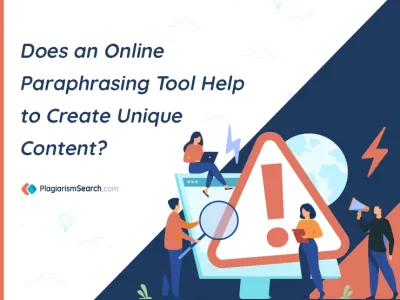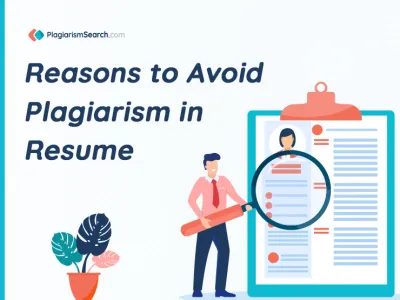
How Does Our Reading Memory Trick Us?
Can you trust your memory? Have you ever had any lapses? It might have happened that you express some idea which seems fresh and original to you, but your friend frowns as it was his idea he presented a month ago. It is rather embarrassing when you tend to forget from where the ideas came from and claim that they are yours. You do that subconsciously, without any intention to steal ideas. That is no problem if you borrow original thoughts in your daily life, but what if that happens in your writing? Now, psychologists refer to cryptomnesia when it goes about this form of plagiarism that is directly related to memory sloppiness.
Is Cryptomnesia a Real Problem?
Although it may look as an excuse for using the ideas of other people, cryptomnesia is real! Some of the images in the memory do not get recognized. Instead, they look like original ideas and you truly believe that you are the one who produced them. So, you simply do not remember that you have heard or read about what you are now talking about.
So, acknowledging the problem of cryptomnesia, researchers actually open the door to a new interpretation of unintentional plagiarism. It means that you can plagiarize absolutely accidentally and it is not clear whether it is an offence in that case. Can the intent of a writer serve as a basis for his responsibility for plagiarism? If not negligence, but memory issues cause the trouble, is strict liability for using the content really valid? On the other hand, plagiarists may use cryptomnesia as an excuse and claim falsely that they have copied ideas simply because their memory failed them. It will be a challenge to distinguish between the real cases and attempts to fabricate the case.
Background of Cryptomnesia
Recollection of things that have happened to us can be flawed and research into the matters of memory is of great importance. First of all, age is the factor. Besides, some false memories may get implanted into the brains and you simply cannot tell whether things have actually taken place. Experiments conducted by Dr. Alan S. Brown, a psychologist of Southern Methodist University, gave a start to the research in this area. According to the results, in up to 9 percent of cases, experiment participants tended to claiming that the ideas of other people were actually theirs. Trying to come up with an effective solution to a problem, all members of the group suggested their own ideas, but a few weeks later they had to specify which ideas from the common list were originally theirs. Coming up with new ideas later on, they attributed the solutions of other participants to them.
In the experiments of other scientists, the findings were the same. Cryptomnesia appears to be more likely when it goes about complicated matters. People find it challenging to trace the source of the information and they simply claim that that they are the authors of the ideas. More than that, some people do not only relate to the solutions from other sources, but also refer to their previous ideas as to new ones.
Can Cryptomnesia Explain Plagiarism?
It is possible to assume that cryptomnesia can be a solid explanation to all cases of untentional plagiarism; however, it is actually a wrong idea. In most cases, cryptomnesia is related only to the things which a person remembers easily, without too much focus on them, such as jokes, smart words, witty statements, short phrases, melodies, and so on. Without too much effort, one takes the information and easily forgets where it has been taken from.
However, when it goes not about a single detail or separate idea, but about borrowing the entire concept, it is wrong to claim that cryptomnesia is the reason. Memories are definitely fading with time, but when the amount of details is large it is simply impossible to explain that through the memory issues.
Factors of Cryptomnesia That Increase Its Likelihood
- Time. The longer period it takes, the more likely cryptomnesia is.
- Gender. It is easier for women to take ideas of other women. The same happens with men.
- Similarity of sources. If the sources are similar, for example they are peers with the same major in studies, the cases of cryptomnesia are more common.
- Circumstances. Disorganized meetings or sessions of brainstorming make the likelihood of cryptomnesia lower, but if people present their ideas in turn, you may be more inclined to borrowing the ideas of other participants.
- Digital overload. Processing a lot of information, the brain focuses only on the most essential aspects of information. It sets priorities and forgets about the source of the data.
Tips on How to Avoid Plagiarism
How can you make your writing original and prevent all issues related to cryptomnesia?
- Do research carefully. Reference the sources and document all facts you want to use. Cross-check every aspects to make sure that there are no cases of unintentional plagiarism.
- Use Google search. It will be a good method of checking whether any information has been copied online.
- Use applications for detecting plagiarism in writing.
- Check on numerous original papers on the same topic. It will be a good way of checking whether any of the ideas have already been documented previously.
- Ask other students to look through your writing. They might recognize some of the ideas in your text and let you know about the fact of unintentional borrowing.
All in all, yes, cryptomnesia happens. The mind may absorb texts, ideas, sounds, images and rearrange them in a new way. For sure, for a person they will seem new, but they are not the product of original thought. Still, these hidden memories cannot be a valid explanation for the issues plagiarists have in their writing. There are flaws in the memory which may interpret how the human brain works, but they are not related to most of plagiarism cases or actually to 99.9% of them.



